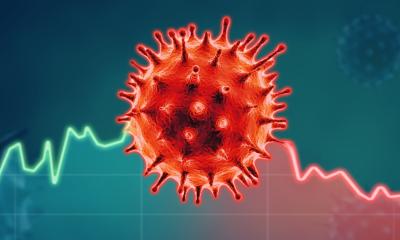© realstock1 – stock.adobe.com
News • Crisis response review
What have European countries learned from the Covid-19 pandemic?
Improving protection through early response, rapid tracking and impact monitoring identified as main takeaways from the pandemic
In September 2023, the Institut Pasteur invited experts involved in managing the Covid-19 crisis in 13 Western European countries to a meeting in Paris. The brief was to review the health crisis and identify lessons that could be learned from it to prepare for future health crises triggered by pandemics. These discussions culminated in a paper summarizing the key lessons learned, which has recently been published in BMC Global and Public Health.
The experts compared excess mortality, standardized for age and sex, per country over a period covering January 2020 to June 2022. Cumulative excess mortality observed over this period ranged from 0.5 to 1 death per 1,000 inhabitants in Scandinavian countries and Ireland to 2.7 deaths per 1,000 inhabitants in Italy. In France, the rate was 1.5 per 1,000 inhabitants, putting the country on a par with Switzerland and Germany.
The main finding was that countries that took measures early, while hospitals still had capacity, experienced the lowest excess mortality rates and also coped best in economic terms.
Recommended article

Article • Covid-19
Coronavirus update
Years after the first outbreak and spread of coronavirus Sars-CoV-2, its impact can still be felt in everyday life. Keep up-to-date with the latest research news, political developments, and background information on Covid-19.
These findings are important to keep in mind for further pandemics and highlight the importance of having a surveillance system capable of quickly tracking the community spread of a virus and its impact on hospitals. By taking measures early, it is also possible to calibrate the response to a crisis, keeping it proportionate to the health threat faced.
In an earlier project, Simon Cauchemez and his team estimated the impact of non-pharmaceutical interventions (such as lockdowns and curfews), vaccination, weather and variants on Covid-19 transmission in France. A statistical model applied to hospital data from 92 French departments between March 2020 and May 2021 revealed:
- Lockdowns and curfews reduced transmission by up to 73% and 34% respectively;
- Vaccination had a beneficial impact, while the emergence of new variants and winter weather increased transmission.
Source: Institut Pasteur
10.12.2024







